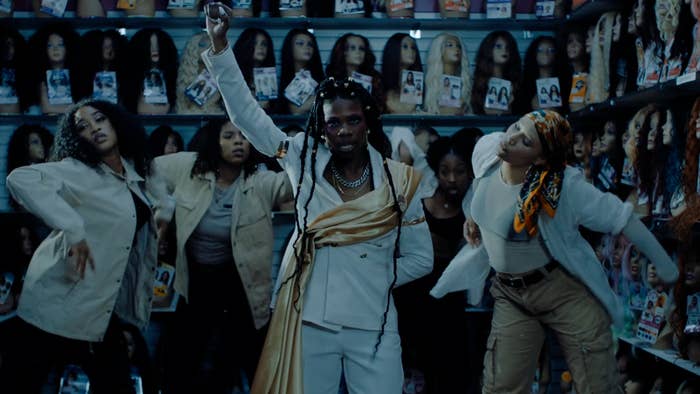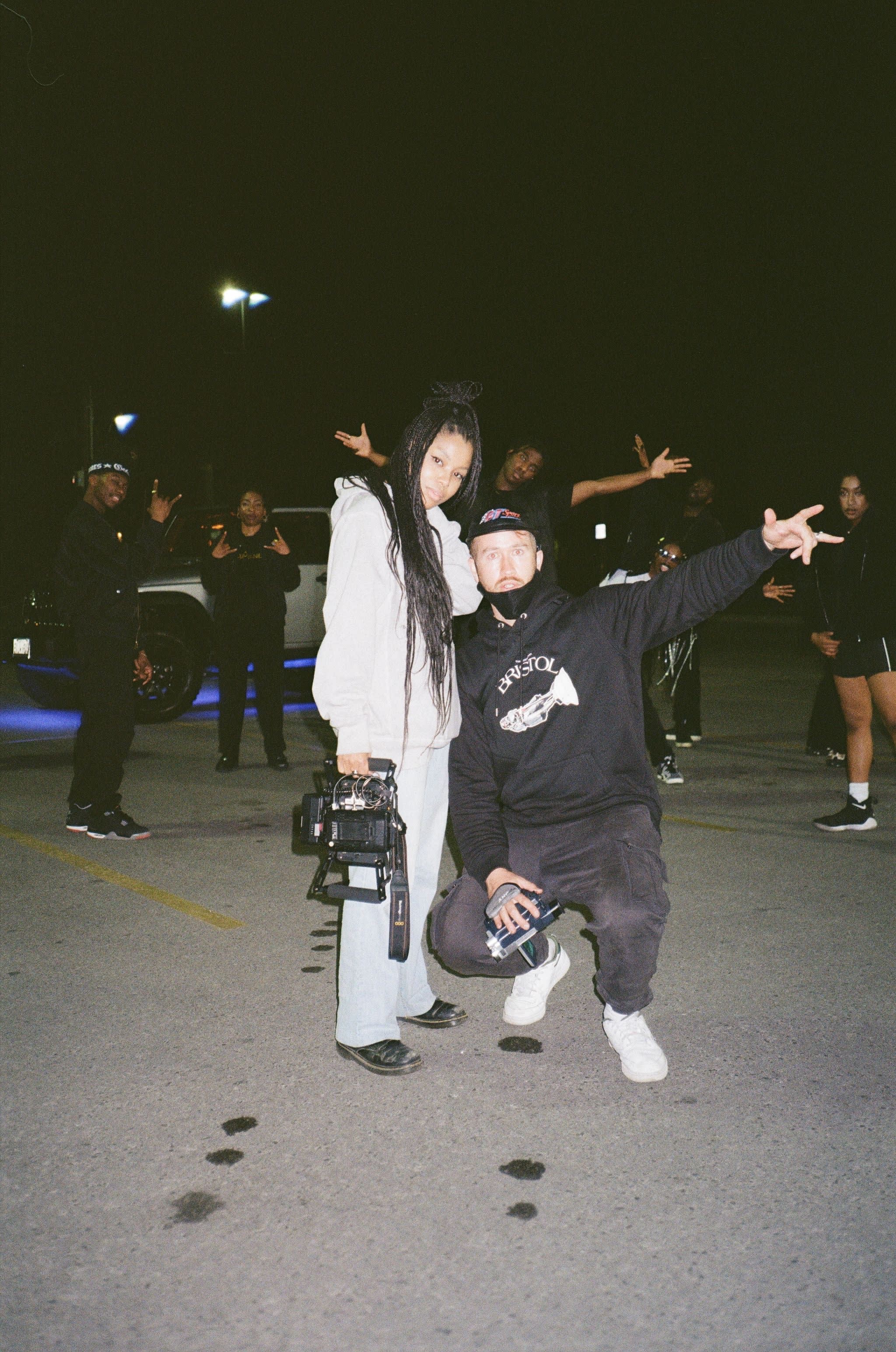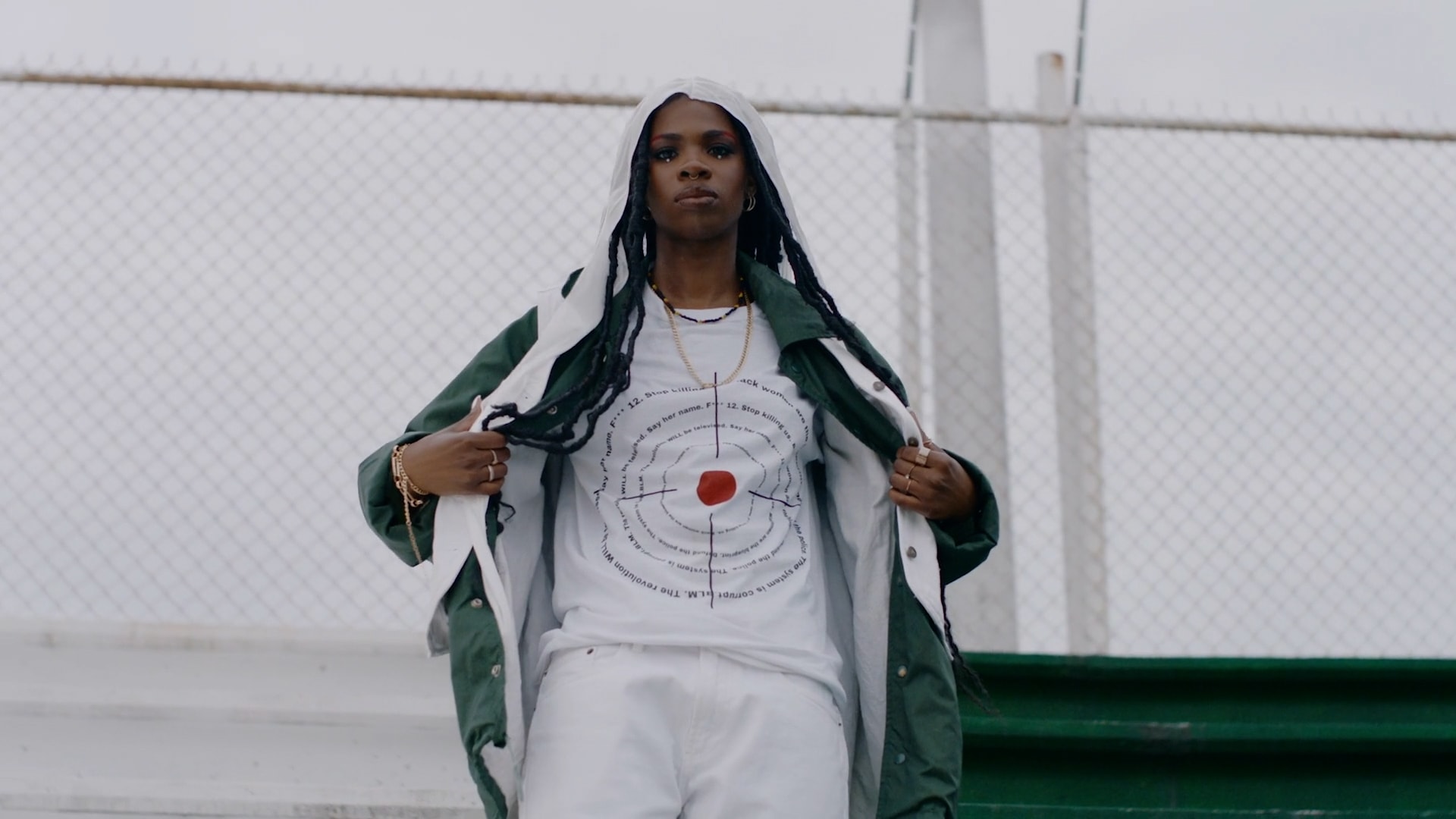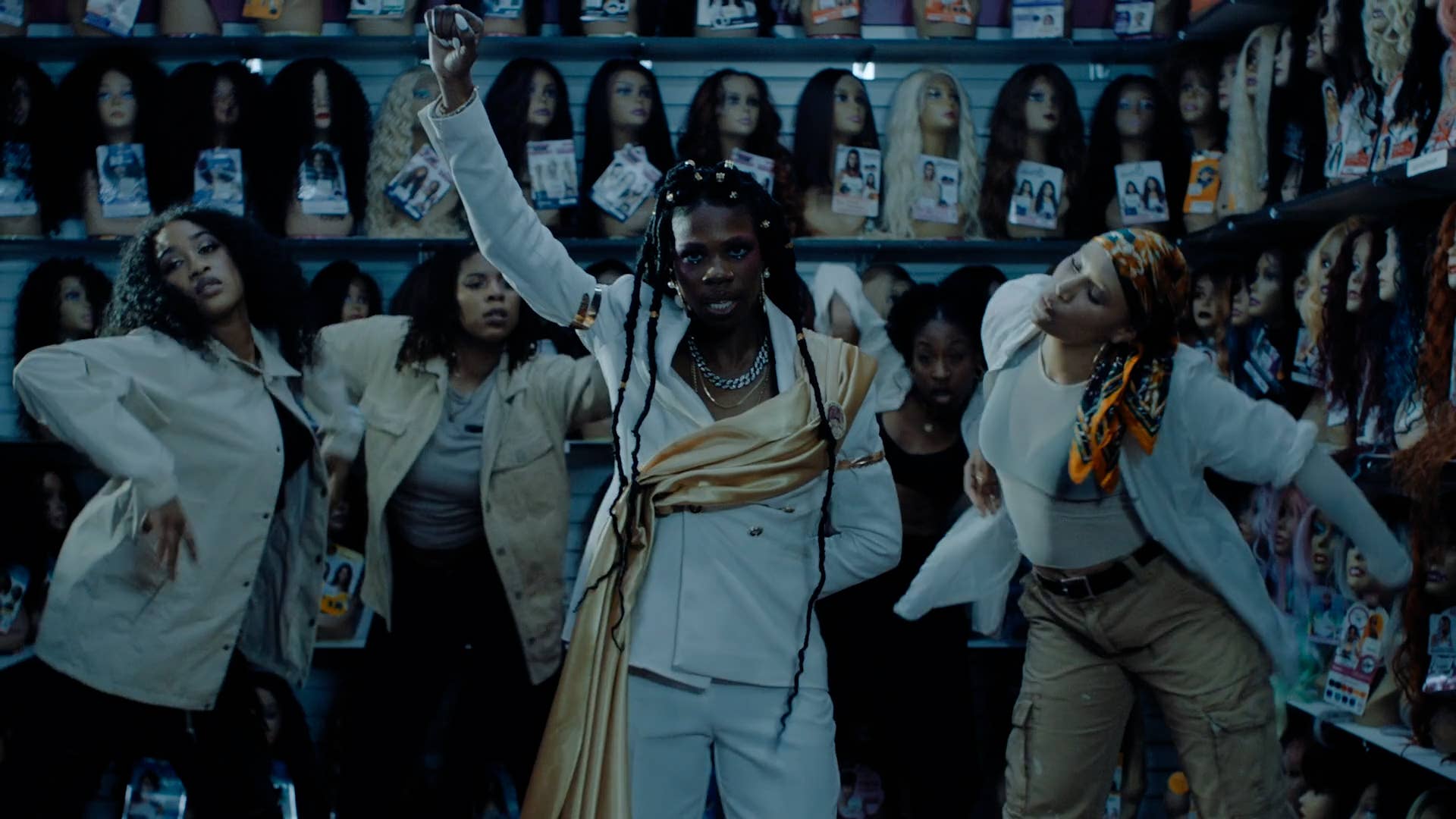
It didn’t take long for Kit Weyman and Chrris Lowe to realize they were onto something special with their video for Haviah Mighty’s “Protest”—one of 10 finalists for the 2022 Prism Prize, given out to the top Canadian music video from the past year. (Others include Mustafa’s “Ali” and two entries from Toronto’s BADBADNOTGOOD.)
Talking to the co-directors over Zoom ahead of Thursday night’s ceremony—which is being held in person in Toronto for the first time since pre-COVID days—Weyman said they knew right away that the powerful Black Lives Matter-inspired video would make this year’s Prism shortlist.
“‘Protest’ is one of my favourite videos, period. Just that I’ve done. But I think that once we saw how it came out, we looked at each other, we were like, ‘Top 10 next year, what you think?,’” Weyman said with a laugh. “At the risk of sounding, you know… We weren’t surprised. I think we were grateful. We were grateful that it resonated so much.”
Lowe agreed, saying that making the video was a “special experience,” even though they never set out to chase this kind of recognition. “We really did put so much care and intention into the project, and were really thoughtful about how we wanted to visually tell this story that Haviah gave us.”
Weyman knows a thing or two about what it takes to make the exclusive list, after being nominated in 2021 for TOBi’s “24” video—which is where he first worked with Mighty, and what eventually led to the two collaborating again on the “Protest” video. “Haviah was on set for like two hours. She showed up. It was -20. I put her on a cop car. She was like, ‘What the fuck are we doing?,’” he recalled, laughing. “Then when it was all done, she was like, ‘Oh. Oh shit.’ She didn’t realize what we were doing, I think.”
Once she saw the finished video, her manager hit Weyman up about “Protest,” and that’s when he asked Lowe to co-direct. The two had met through a mutual friend, and worked together on TOBi’s “Matter” video. “It was just a no-brainer. It was like, Chrris should definitely be on that,” he recalled. “Chrris needs to be behind the camera.”
For Lowe, it was an opportunity to learn. “But I think as we started working on things, it felt very equal,” she said. “I grew up in acting,” explained Weyman, who appeared in Life With Derek and Degrassi: The Next Generation as a teen. “So I know what collaboration is. I know that having a safe space to create is the most important thing in creating good work.”
“It was just Haviah being like, ‘This is happening. I don’t feel like not talking about it. I want my lyrics to speak directly about the experiences that not only I’ve had, but other Black Canadians have had.’”
“That’s what’s so special,” Lowe said of the “synergistic” finished product. “Both of us exist in it. It’s not one person’s thing. It’s like, this is what happens when two minds come together, and create space for each other to merge and to create something that is just different and bigger than both of them.”
“This video is about Black violence, and it’s about protesting. It’s literally called ‘Protest.’ And then having a white man as one of the directors on it…” Lowe trailed off, but you can probably fill in the blank. “But Kit is one of very few white men that I know that holds space in that way. I’ve never felt small on set with Kit.”
Instead, Weyman does the work, she said. Making space and asking questions, but never in a way that made her feel like the designated “Black educator,” she recalled. “Kit is tapped into the culture in that way, and it’s because he makes an effort to.”
“I’ve learned that from Black women, though,” replied Weyman. “First and foremost, for me anyways, personally, Black women are the culture.”

And while Haviah Mighty’s song was directly inspired by the disturbing murder of George Floyd at the hands of Minneapolis police and ensuing Black Lives Matter protests, Weyman and Lowe knew they didn’t want to lean too heavily on the same triggering imagery that’s been burned into our collective brains in recent years—especially considering they filmed the video in April 2021, around the same time Derek Chauvin was on trial, and convicted, for Floyd’s murder.
“I think at that point too, a lot of us were just like, we’re tired of seeing Black bodies violated and hurt and harmed to get across this message that violence is happening. Because it is. And if you’re a Black person, if you’re just in tune with what’s happening in society and culture, you’re aware of that. We don’t need to see it drilled into our heads. We just came off a year of seeing that,” Lowe recalled. “That’s how we came up with a lot of the ideas in ‘Protest,’ where people could feel that energy, but it wasn’t just like, ‘Here is Black violence given to you in a flashy form.’ ”
The goal was to create a video that was high energy, but low trauma, according to Weyman, while still addressing a conversation around anti-Black racism that needed to be had—especially at home in Canada. “I think all of us can say there is this kind of, ‘Well, it’s Canada. So, you know, it’s not as bad.’ Or it’s not really happening here. But it does,” explained Lowe. “And I think that’s why this video made such an impact, because it was just Haviah being like, ‘This is happening. I don’t feel like not talking about it. I want my lyrics to speak directly about the experiences that not only I’ve had, but other Black Canadians have had.’”

“As an artist, I’m blessed to have a song of mine grow into such a powerful visual experience that has impacted many. So much love to Kit Weyman and Chrris Lowe for helping interpret such a difficult theme in such a beautiful way—staying away from extremely harsh triggers and focusing on the everyday real realities Black people face,” Mighty told Complex Canada. “It’s really about expanding the mind—there are many who don’t understand the value and necessity of protesting and this song outlines why that thinking is flawed and rooted in ignorance.”
“Just to be able to have that conversation without retraumatizing people, I think that’s something that is hard to do, because these times are traumatic, and I feel thankful that we were able to do that,” Lowe said. “I’m really glad, because that was the last thing that I wanted to do coming off of such a traumatic year for so many people, myself included.”
Now, the pair will wait and see if they can help Mighty take home her second straight Prism Prize, after winning with director/animator Theo Kapodistrias for “Thirteen” last year. (In Prism’s 10-year history, no artist has won the Grand Prize twice, let alone two in a row.) But in true Canadian fashion, neither Weyman or Lowe want to get their hopes up.
“The Canadian part of me is like, ‘Yeah, since she won last year, she won’t win this year.’ Because that’s how it works. Like, ‘You had your turn, and now it’s someone else’s turn,’” said Weyman.
“That’s something that Kit and I thought about, because she did win last year,” agreed Lowe. “But honestly, I feel like the video is good enough to win in the end. I’d be very grateful if it did, for sure.”
Grateful, but not surprised.


